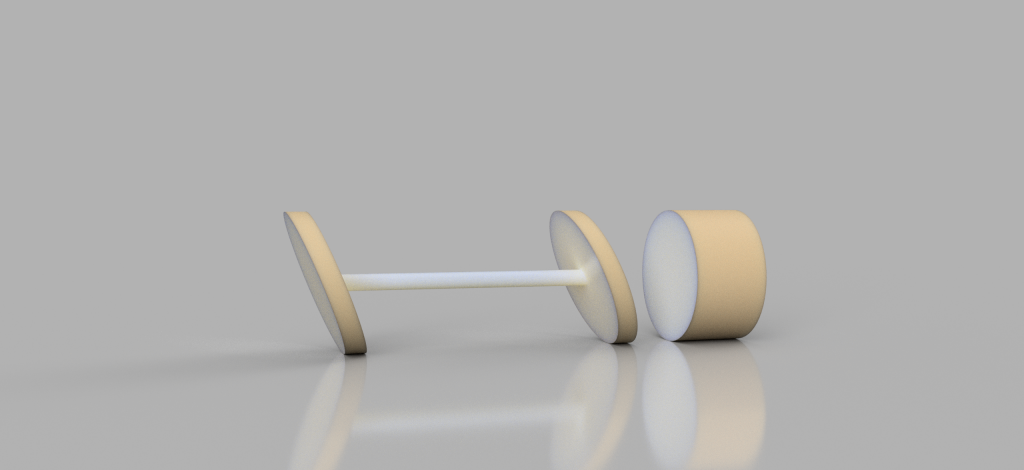Wobbler
The so-called wobbler is a very simple geometrical object. The two discs are cut from a cylinder with a cut plane which is arbitrarily tilted with respect to the cylinder’s axis. Connecting the two discs then makes the new solid “wobble” when rolling.

Why does the wobbler wobble?
The wobble in the video above wobbles in two ways:
- from left to right
- up and down
Because of the tilted cylindrical discs, one might think that the solid were dragged from left to right and vice versa. The wobbler however moves on a perfectly straight path, so there are no forces which push the object to either side. There are however torques which push the solid to one side, but either of these torques is annihilated by the counterbalancing torque of the other disc.
The wobbling up and down is a consequence of both the mediocre assembly of the wobbler and optical illusion. The connecting rod between the discs is a cuboid instead of a cylinder and hence reflects the sun differenty. Furthermore, the 3D-printed wobbler is not put together perfecty, i.e. the discs do not have the right angle. This causes the wobble to possess a maximum and minimum of potential energy.
As one can see in the video below, the center of mass of perfect wobbler does not change its height. It stays at the center of the connecting rod. Since the potential energy is hence constant, no movement up or down can occur, because this would require potential energy to be converted to kinetic energy.